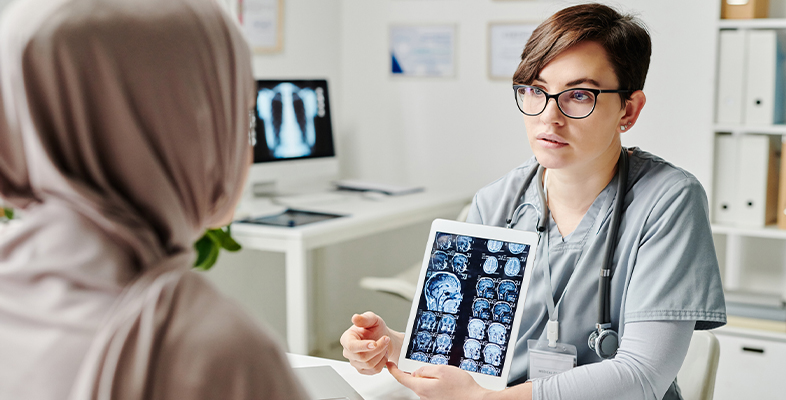4.2 Giving effective feedback
Giving feedback is a skill and like all skills it needs to be practiced in order for the assessor to be confident and competent in carrying it out. Feedback given positively and constructively can be motivating and empowering. Conversely feedback given negatively can be demoralising and can cause distress. Therefore, it is important that feedback is clear, focused and given regularly. Even if that feedback needs to be negative, if it is carried out in a positive and constructive way it will still allow the individual to be comfortable with the person giving the feedback (Moyle, 2020). Feedback/feedforward should also mention specific strategies the student can use to improve their learning and performance, which can then guide their next steps (Matua et al., 2014).
Activity 18
Read the following article by Burgess, van Diffele, Roberts and Mellis: Feedback in the clinical setting [Tip: hold Ctrl and click a link to open it in a new tab. (Hide tip)] . The research methodology section is very short but there is very rich invaluable information that follows. List your top three ‘take away’ messages from the discussion presented in this paper.
Feedback sources to consider:
- Begin feedback sessions with the learner’s self-assessment.
- Provide feedback in a timely manner.
- Reinforce and correct observed behaviours.
- Confirm the learner’s understanding and conclude with an action plan.
- Develop a capacity in learners to self-reflect on their own practice and how it might be improved.
Encourage students to reflect on their own assessment and to consider areas of strength and areas of potential development.
Activity 19
Watch this video clip of The Office and identify which of the above bullet points you can see displayed and what you thought about them.
Feedback may come from a variety of sources including other healthcare colleagues, healthcare professionals, service users and families. This may add credibility as it provides different perspectives on the students’ performance and can be particularly helpful if there are concerns with performance involving service users. This evidence should be written and be unbiased. While it is good to encourage a more active role for patients, service users and carers in having a voice in informing assessments. Whatever the sources of evidence collected there are certain ethical implications which must be considered, such as patients/others must not feel forced to provide feedback on a student.
It is very important to remember that students should be assessed against pre-set standards and not against peers or assessor expectations which may be subject to bias.

